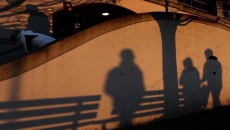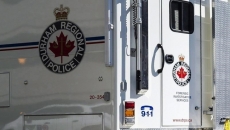A man convicted of first-degree murder after his wife drowned while boating has been granted a new trial.
Justice Lauri Ann Fenlon of the B.C. Court of Appeal says in a decision released Tuesday that the case against Peter Beckett was circumstantial and the trial judge made several errors in relation to the admission of evidence and instructions to the jury.
Court documents show the couple, who were living in Alberta, were boating on a lake near Revelstoke in 2010 when Laura Letts-Beckett, who could not swim and was not wearing a life jacket, entered the water and drowned.
Beckett, a former city councillor from New Zealand, was charged with first-degree murder a year later.
His first trial ended in a hung jury and a mistrial before he was convicted at a second trial in 2017.
The three-justice panel of the Appeal Court was unanimous in overturning the conviction.
At the second trial, Crown counsel alleged that Beckett pushed his wife into the water, killing her so he could cash in on her life insurance policy and pension. The defence said Beckett's wife accidentally fell in and Beckett tried to save her.
Fenlon wrote that the trial judge erred in instructing jurors that they could use Beckett's statement to police shortly after the drowning as evidence of fabrication that would support a guilty verdict in the absence of independent evidence that he intentionally made up the story.
She says the judge also erred in admitting evidence that "invited the jury to engage in improper speculation," while she also wrote that the Crown made improper submissions to the jury that referred to unproven facts.
"I am of the view that the Crown’s case was not a strong one, and is likely to be less so on retrial given the conclusions I have reached," Fenlon wrote in her reasons for judgment.
"In these circumstances, a very real question arises as to whether it is in the interests of justice to proceed with yet a third trial. That decision, however, ultimately lies with the Crown."
She added that although the verdict "raises concern and unease," it could not be said that the jury's verdict was unreasonable and an acquittal was not warranted.
British Columbia's Crown prosecution service could not immediately be reached for comment.






